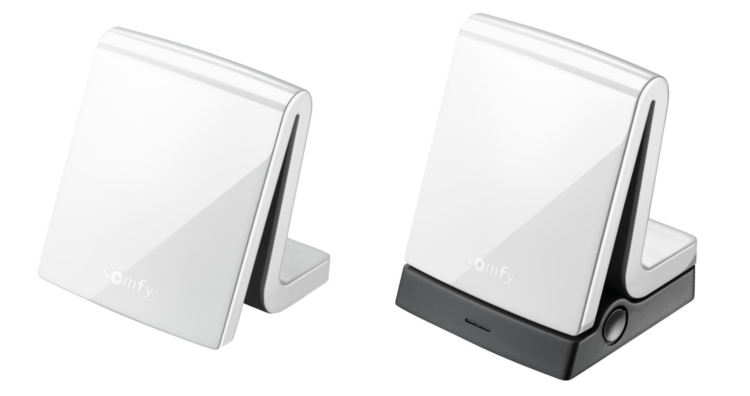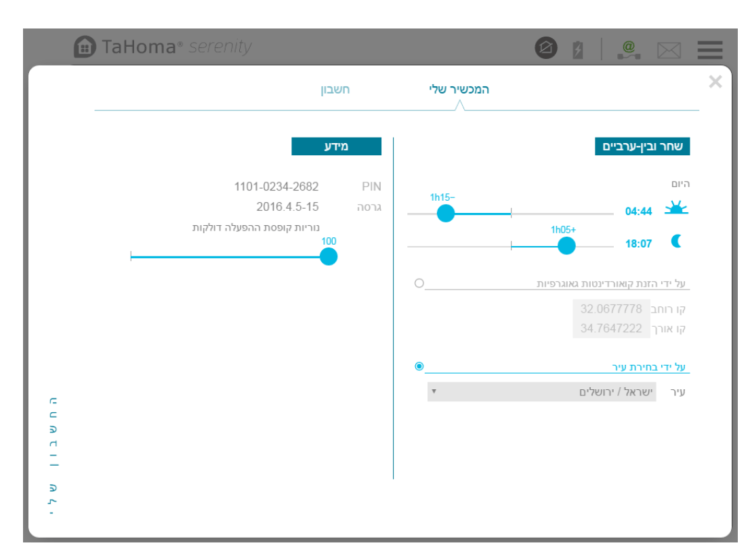Somfy unveiled its TaHoma smart home network in Israel in December 2016 (courtesy)
Somfy hopes to capitalize on Israel’s craving for tech and its local market’s unique demands
The global smart home industry is expecting explosive growth in the next five years, with the industry hitting a valuation of some $121.73 billion by 2022 according to Markets and Markets. Demand can revolve around just about any appliance or room in the house: heating, ventilation, and air conditioning (HVAC); light switches, temperature control, home health monitoring, and the connected kitchen are just some of those examples.
Lost in the scramble to answer demand is the realization that some markets have particular, even peculiar, specification requests of manufacturers. One of those markets will be able to answer demand in a way that will leave its industry players prepared to tackle other challenges.
Israel is home to one of the world’s most innovative economies, as anyone who follows the global startup scene knows. It is also home to a large population of Orthodox Jews, whose observance of the Sabbath creates an unusual situation that few groups around the world can relate to. As an extension of rules against kindling fires on the Sabbath, Orthodox Jews largely avoid using electricity and appliances during the 24-hour period. This is where pre-set hot plates, light timers, and other automation devices can come in handy.
Based in France, Somfy employs over 8,000 people globally and has a turnover of €100 billion a year. Somfy has over a million customers in Israel, representing the highest ratio of customers to general population of any market where Somfy and its franchises do business (about one out of every eight Israelis). They have 50,000 units on the market right now managing over 500,000 individual products. Now, they are renewing their push of the TaHoma smart home network management system in the Israeli market.
Besides blinds, shades, and curtains, they also broach the entertainment side by selling old-school-style motorized projection screens. Outdoors, they sell rolling shutters, exterior screens, awnings, and pergolas.
“In Israel you don’t really buy DIY installs,” Issac Muchtar, General Manager at Somfy Israel tells Geektime. But beyond installation of hardware behind electrical outlets and light switches, the system is largely self-administered with no team operating your alarms behind the scenes. There’s some online support, YouTube videos to help with initial configuration, and that’s it. “Our philosophy is to minimize the dependency of the end-users on us.”
Currently the system can support up to 50 devices with plans to expand in the future. They are currently developing a transmitter that learns the protocol of any air-conditioning system. At the moment they have three tiered packages that vary in terms of security integrated into the package: one covering all your smart home products, another tier that adds a camera security network, then another level that includes alarms and motion sensors with batteries that can last for years.

The TaHoma box, which manages the Somfy smart home network on sale now in Israel, is given an extra layer of security with a physical add on R) courtesy)
“Monitoring the house with cameras is becoming more popular,” he tells Geektime. “An additional part is security, which comes in two levels: basic TaHoma, [where] you add an element that includes a siren and SIM cards which can be connected to different sensors like motion sensors. Most of the time it’s targeted to apartments, but houses might have more sophisticated features.”
They mainly focus on lighting and blinds, but are setting up their technology to later adapt to the APIs of larger smart home IoT management networks like Google Home or Amazon Echo. That expansion also means accommodating demand for better control over other appliances: ovens and refrigerators probably being at the top of the list.
That expansion will also get easier with the recent announcement that Google Home will open its API to developers in due time. That could make it easier for companies like Somfy to get in on Google’s dominance of the smart home market (notwithstanding Amazon’s efforts) rather than compete with it.

TaHoma also operates outdoor products like rolling shutters, exterior screens, awnings, pergolas (courtesy)
“We don’t have direct access to the internal wiring of the refrigerator unless you have a very smart electrician,” says Muchtar. Where this might become interesting for religious customers is the ability to preset the lights in fridges to go off prior to the Sabbath beginning (so opening a door doesn’t incidentally turn lights on) or presetting ovens or stove tops to turn on at a low mode to heat pre-cooked food. The current lack of those options hasn’t dampened business in Israel, though. “So far, for religious people are interested in blinds.”

TaHoma lets you set your lights and blinds to go on or go up relative to the sun, not just at fixed times (courtesy)
They plan to work with the Zomet Institute (pronounced ‘tzomet’), a religious organization that accommodates modern technologies with the restrictions the Sabbath and holidays might impose on Orthodox Jews, as they further customize their connections with other appliances and new additions to their connected home network. That might include a new gas timer for holiday cooking, or a stair lift for the disabled to go up and down flights on the Sabbath or a holiday.
In the meantime, they include a special setting that takes these needs into account. The start and end times for the Sabbath vary throughout the year as the sun sets later or earlier. The same goes for wake-up time as sunrise changes.
“We say the major demand for this product comes from religious people because they would like their shutters to open and close at a certain time.”
It automatically can incorporate the shifting times of the Jewish Sabbath, skipping a cumbersome selection process in favor of a setting that turns devices on and off, for example, two hours after sunrise or lights on within an hour of sunset as it starts to get dark. That setting can remain in place all year, agnostic to the time itself. And of course, the software is privy to clock changes during the seasons.
More Goodies From IoT

Fitbit acquires Pebble’s assets, but that won’t cover Pebble’s devices

Microsoft announces Paja foundation for Finnish startups to build IoT prototypes



